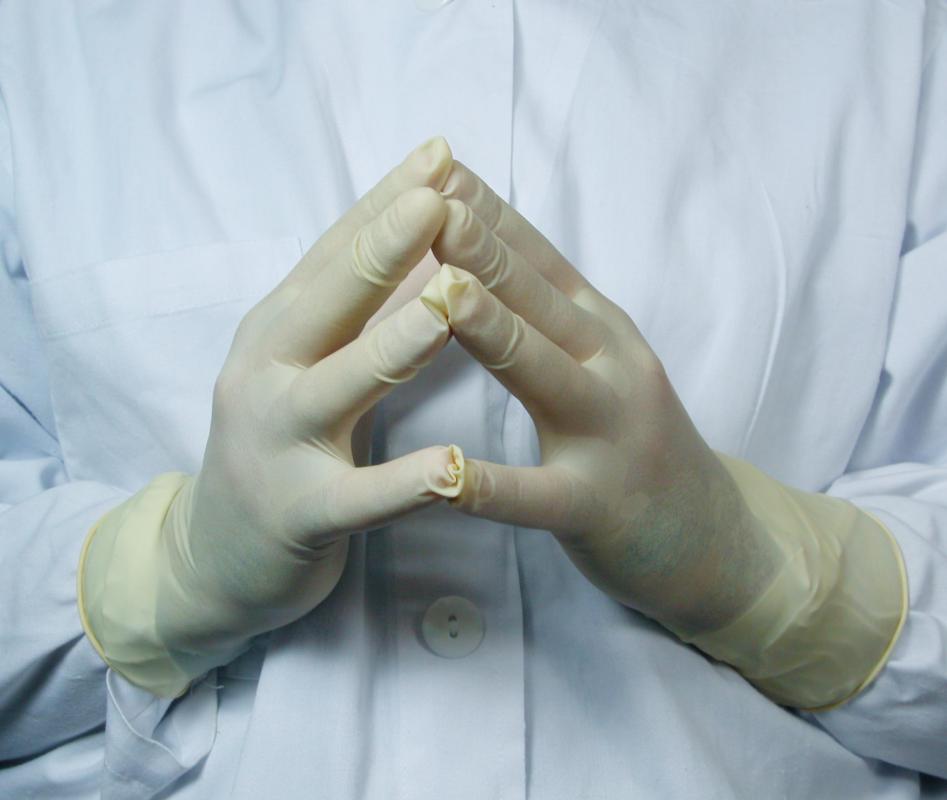At WiseGEEK, we're committed to delivering accurate, trustworthy information. Our expert-authored content is rigorously fact-checked and sourced from credible authorities. Discover how we uphold the highest standards in providing you with reliable knowledge.
What are the Most Common Hospital Infections?
Hospital infections, also known as healthcare-associated infections, are those that an individual develops as a result of being hospitalized. Common hospital infections include those of the urinary tract, the bloodstream, and the respiratory system. Among pediatric patients, one of the most common infections is the rotavirus.
A urinary tract infection (UTI) is one of the most common hospital infections and is caused by a strain of the E. coli virus coming in contact with the renal system. Women are more susceptible than men, and the infection usually impacts parts of the bladder or urethra. Fortunately, while it can be a painful and annoying condition, it is not generally life-threatening. Most individuals who contract this infection are successfully treated with antibiotics, though suffering from a UTI means consistently feeling the need to urinate, a burning feeling while doing so, and pain throughout the pelvis.

Pneumonia, which infects the respiratory system, is another infectious disease commonly spread through hospitals. Patients with pneumonia display difficulty breathing, a severe cough and may or may not have a fever. For most adults, it is not a serious disease; in pediatric or geriatric patients, however, it can be deadly. Symptoms can be mild to severe, but when it is caught as a result of being hospitalized, it is usually severe because the body is already compromised in some way. It is generally spread through the presence of bacteria in the air and is usually inhaled by patients.

The most deadly of the common hospital infections are the infections of the bloodstream. Middle-aged and elderly patients are the most susceptible to these infections, which are typically acquired through improper procedures relating to catheters. Hospital staff members who do not follow the proper hand-washing procedures also play a role in the contraction of these infections.

In children, among the most common hospital infections is rotavirus. An infection of the digestive tract, it causes severe diarrhea, vomiting and stomach pain. It can lead to dehydration if the individual is not properly cared for, and it can present a deadly risk to children younger than five years old. The virus is present in the fecal matter of the infected person and is spread between patients when proper hand-washing and sterilization procedures are not followed.

Many times, a patient who is going to contract an infection related to a hospital stay will do so within two to four days of admission. In some cases, symptoms only develop after the individual goes home. Often, he or she must return to a medical professional for additional treatment.
AS FEATURED ON:
AS FEATURED ON:



















Discussion Comments
I have heard nurses say that staying for an extended length of time in the hospital was a good way to get sick. Staph infections tend to be common goolies in the hospital environment, and sometimes, MRSA even rears its ugly head.
Many hospitals now have bottles of hand sanitizer outside every patient room, as well as by the elevators. Signs encourage their use to help cut down on the numbers of preventable infections. Most nurses and techs I've seen always sanitize their hands before entering a patient's room and gloving up. That's just good sense, as far as I'm concerned.
Post your comments